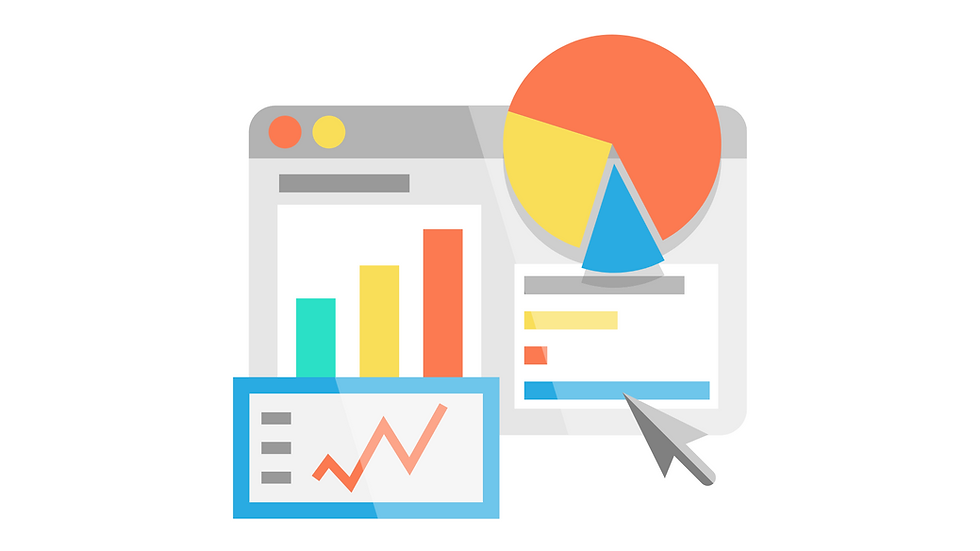Google Analytics (GA4) vs Universal Analytics - Understanding their differences
- Natalia Mendoza
- Jan 19, 2024
- 2 min read

Universal Analytics (UA) and Google Analytics 4 (GA4) are two different versions of Google Analytics, designed to help website owners understand their visitors and the effectiveness of their digital marketing. Google introduced GA4 as the next generation of analytics, built with the future of digital analytics in mind. Here are the main differences between Universal Analytics and GA4:
Data Model:
Universal Analytics: Uses a session-based data model. Sessions and pageviews are the primary units of measurement, focusing on user sessions and interactions within those sessions.
GA4: Uses an event-based data model. Everything is considered an event, providing a more flexible way to track user interactions across websites and apps. This model allows for a more detailed understanding of user behavior.
Measurement ID vs. Tracking ID:
Universal Analytics: Utilizes a tracking ID that starts with UA-.
GA4: Uses a measurement ID that starts with G-, reflecting its new event-based tracking system.
Cross-platform Tracking:
Universal Analytics: Primarily designed for tracking websites. While it can track mobile apps through a separate property type (Universal Analytics for Apps), integrating data from websites and apps requires additional setup and can be cumbersome.
GA4: Built from the ground up to track users across websites and apps seamlessly. It allows for a unified view of the customer journey across different platforms.
Machine Learning & AI:
Universal Analytics: Offers some automated insights but is limited in predictive capabilities.
GA4: Heavily incorporates machine learning and AI to provide predictive insights, automated event tracking, and anomaly detection. This includes predictions about user behavior, such as potential revenue from specific segments.
Privacy and Data Control:
Universal Analytics: Provides basic tools for data privacy and control, but its capabilities are limited compared to GA4.
GA4: Designed with privacy in mind, offering more robust tools for data deletion, user data control, and consent management. It's better suited for compliance with regulations like GDPR and CCPA.
Reporting and Interface:
Universal Analytics: Offers a wide range of standard reports that are predefined and immediately available.
GA4: Provides a more customizable reporting interface, focusing on exploration and analysis over standard reports. Users can create and tailor reports to their specific needs.
Session Timeout Customization:
Universal Analytics: Allows customization of session and campaign timeout lengths.
GA4: Provides a fixed session timeout that is not customizable, aligning with its event-based model.
Bounce Rate vs. Engagement Rate:
Universal Analytics: Focuses on bounce rate as a key metric, which measures the percentage of single-page sessions.
GA4: Introduces engagement rate, focusing on engaged sessions, time on site, and event count. This represents a shift towards measuring user engagement more holistically.



Comments